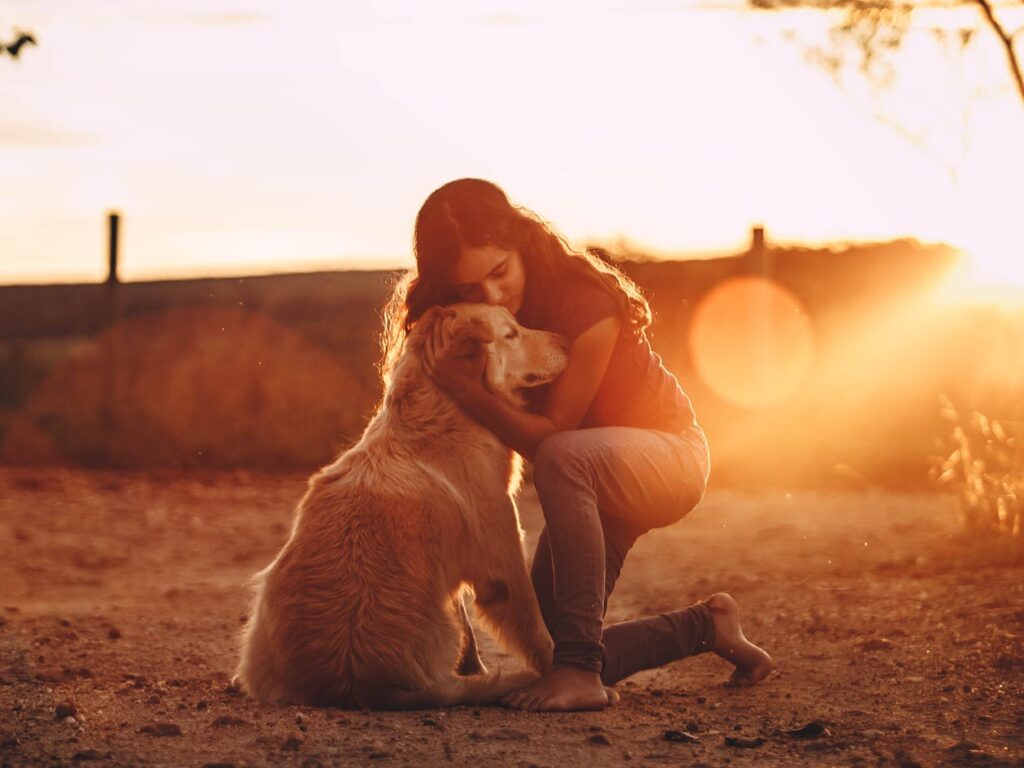Spain Bans Treating Pets as Property in Landmark Animal Rights Law

Courts across Spain faced impossible choices when couples separated. Lawyers argued over who deserved custody. Judges lacked legal frameworks to make fair decisions. Yet nobody was fighting over children or property divisions. Something else entirely was tearing families apart through legal systems designed centuries ago.
Dogs, cats, and other beloved companions became battlegrounds during divorce proceedings. Legal codes treated them identically to televisions, furniture, or kitchen appliances. Judges divided pets like any other household item without considering their wellbeing, emotional bonds, or basic needs. Absurdity of this system finally reached breaking point in December 2021.
Congress of Deputies voted to change everything about how Spanish law views animals. One historic decision transformed pets from objects into family members with legal rights and protections. Entire nation shifted its perspective on creatures sharing our homes and hearts.
Spain Just Changed How Entire Country Views Pets

Congress of Deputies passed groundbreaking legislation in December 2021 recognizing animals as sentient beings rather than inanimate objects. Historic vote amended Spain’s Civil Code, Mortgage Law, and Civil Procedure Law to reflect scientific understanding that animals experience emotions, pain, and suffering.
Law 17/2021 entered force on January 5, 2022, after publication in Spain’s official gazette. Broad support from across political spectrum carried the measure through both houses of parliament. Only far-right Vox party opposed legislation that fundamentally altered legal status of millions of pets and wild animals.
Changes apply to domestic pets and wild species equally, establishing consistent framework for protecting animal welfare across situations. Legal recognition means animals can no longer be seized, abandoned, mistreated, or separated from owners without courts considering their wellbeing and protection needs.
Four years of advocacy, political upheaval, and legislative wrangling preceded final passage. Animal protection organizations collected thousands of signatures supporting the bill. Professor Nuria Máximo from Rey Juan Carlos University explained these changes reflect how society evolves its vision of proper animal treatment.
Dogs and Cats Now Equal to TVs in Divorce Courts No More
Previous Civil Code treated pets identically to furniture, electronics, or any other household possession during separation proceedings. Judges divided animals based purely on property ownership principles without legal basis to consider emotional attachments, caregiving responsibilities, or animal needs.
Lawyers representing divorcing couples faced frustrating limitations when clients fought over beloved pets. No legal framework existed for arguing that one person provided better care, maintained stronger bonds, or could offer superior living conditions. Courts applied same property division rules used for splitting record collections or beach houses.
María González Lacabex from INTERcids, a legal organization focused on animal protection, welcomed the reform: “It’s a step forward and it says that in separations and divorces, the arrangement that will be applied to the animals will take into account not only the interests of the humans, but also of the animal.”
New framework puts animal welfare at center of custody decisions rather than treating pets as possessions subject to property laws alone. Judges now evaluate what arrangement serves animals best while balancing human interests in maintaining relationships with pets.
Border Collie Named Panda Gets Joint Custody Deal

Spanish judge awarded separated couple joint custody of their border collie named Panda in October 2021, before legislation officially passed. Man and woman adopted the dog together but went to court after their relationship ended, each wanting to keep their beloved pet.
Arrangement mirrors child custody more than property division. Each person spends alternating months with Panda while paying expenses during their custody period. Lola García, the woman’s lawyer, described the setup as remarkably similar to separated couples sharing custody of human children.
Case demonstrated goals of pending legislation before law was codified. Judge recognized that Panda’s wellbeing mattered beyond simple ownership claims. Both parties maintained meaningful relationships with the dog, making shared custody the fairest solution for everyone involved including Panda himself.
What Sentient Being Status Actually Means Legally
Sentient being recognition acknowledges animals as creatures capable of experiencing emotions, suffering, joy, fear, and pain. Scientific consensus confirms that mammals, birds, and many other species possess nervous systems that process sensations and generate emotional responses.
Legal protection extends comprehensively across domestic pets like dogs and cats as well as wild species living in natural habitats. Animals gain standing separate from inanimate objects, requiring courts and authorities to evaluate their welfare in any legal proceedings affecting them.
Companion animals cannot be seized to cover debts like furniture or vehicles. Financial troubles no longer threaten pet ownership when creditors pursue unpaid bills. Law separates economic hardship from animal welfare concerns, preventing pets from becoming collateral damage during financial struggles.
Civil Procedure Law amendments explicitly prevent companion animal seizure for debt collection purposes. Livestock, industrial animals, and recreational farm animals also gained protection from mortgage inclusion and seizure proceedings.
Divorce Lawyers Now Factor in Pet Happiness

Courts must evaluate which custody arrangement serves animals best when couples separate. Both human interests and animal welfare weigh in judicial decisions about who keeps pets or whether shared custody makes sense. Judges gained authority to modify care conditions and expense sharing based on circumstances.
Animal welfare overrides simple ownership claims when determining custody. Person who purchased the pet doesn’t automatically win custody if evidence shows the other party provided primary care, maintains stronger emotional bonds, or offers better living conditions for the animal.
Judicial authorities can decide pet fate when multiple heirs claim animals from estates without unanimous agreement. Courts prioritize animal welfare when resolving disputes rather than defaulting to traditional property distribution principles. If no heirs accept responsibility, administration can place pets with third parties for proper care and protection.
Lost Pets Get Protection from Abusive Owners

Finders must return lost animals to owners or responsible caregivers under normal circumstances. However, well-founded indicators of abuse or neglect trigger different procedures. When evidence suggests mistreatment, finders bring animals to competent authorities rather than returning them to abusive situations.
System balances ownership rights with welfare concerns when pets go missing. People returning lost pets to legitimate owners can claim reimbursement for treatment and care expenses incurred during the animal’s time away from home.
Protection prevents abusive owners from reclaiming animals through legal system without addressing welfare concerns. Authorities investigate suspected mistreatment before reuniting pets with owners who may have harmed them previously.
Domestic Violence Cases Now Include Pet Abuse
Judges consider animal mistreatment evidence when determining child custody arrangements during divorce proceedings. Threatening or harming pets gets recognized as control tactic and form of vicarious abuse targeting partners or children through vulnerable animals.
Legal system acknowledges that people who abuse animals often direct violence toward human family members as well. Research consistently links animal cruelty to interpersonal violence, making pet mistreatment a relevant factor in custody decisions protecting children from potentially violent parents.
Law provides that judges may rule against granting joint child custody to partners with well-founded evidence of domestic or gender violence, including mistreating or threatening to harm animals as means of controlling or victimizing other partners or their children.
Four-Year Battle to Pass Historic Legislation

Initial proposal emerged in 2017 but stalled when Spain held two general elections during April and November 2019. Political upheaval prevented progress on animal welfare reforms as government formation consumed parliamentary attention.
Legislation finally reached Congress in April 2021 where all parties except Vox supported the measure. Senate approved the bill in September with some modifications before sending it back to Congress for final approval in December. Each chamber’s involvement reflected widespread political support for recognizing animal sentience.
Animal protection associations like Observatory for Animal Justice and Defense proved instrumental in collecting signatures supporting the bill. Grassroots advocacy combined with political will to achieve passage after years of starts and stops.
Only Far-Right Party Voted Against Animal Rights
Vox party cast sole opposition votes against sentient being status during parliamentary proceedings. Ángel López Maraver, former president of Spanish Hunting Federation, dismissed the law as “insanity, nonsense, stupidity. It humanizes animals and dehumanizes man.”
Conservative Popular Party largely supported legislation text but warned coalition government against pursuing stricter animal protections. Teresa Aguada from PP called on Socialists not to attack traditions, culture, and rural communities through excessive regulations.
Social Rights Ministry, headed by Ione Belarra from Unidas Podemos, prepares draft animal welfare law with stricter measures preventing trafficking and abuse. Political tensions remain about how far protections should extend and whether urban values should override rural traditions.
Most congressional parties celebrated passage. Juantxo López de Uralde from Unidas Podemos called it “a moral victory in a country where 200,000 animals are abandoned each year.”
Violence Against Animals Predicts Human Violence
Sonia Guaita from PSOE pointed out that similar legislation exists in most European countries, adding that people violent against animals show potential for human violence as well. Pattern recognition helps protect both animal and human victims through legal frameworks addressing abuse comprehensively.
Guillermo Díaz from center-right Ciudadanos defended the law: “We are the only species that recognizes the suffering of others and as such we have an obligation to prevent that suffering.”
Societal benefit extends beyond animal welfare alone when legal systems acknowledge connections between different forms of violence. Protecting animals helps identify and prevent abuse that might otherwise escalate toward human targets.
Spain Joins Growing European Movement

Austria pioneered similar animal protection laws in 1986, becoming first European nation to grant legal personhood elements to animals. Germany followed in 1990, then Switzerland in 2003. Catalonia passed regional protections in 2006 before Spain’s national legislation.
Belgium enacted reforms in 2009, France in 2015, and Portugal in 2017. European momentum toward animal legal personhood reflects changing cultural attitudes about human responsibilities toward other species sharing our world.
Countries outside Europe joined the movement as well. Canada and New Zealand each passed measures recognizing animals as sentient beings with legal protections beyond property status. Global trend demonstrates widespread rethinking of legal frameworks governing human-animal relationships.
American States Adopt Pet Custody Guidelines

New York enacted law in October 2021 instructing judges to determine what serves pet best interests during custody battles. Judges treat pets more like children than property when evaluating divorce arrangements.
California, Illinois, and Alaska passed similar measures giving courts guidance for pet custody decisions. Assemblywoman Deborah Glick from Manhattan explained that while pets were simply property in the past, recognition as sentient beings deserves thoughtful consideration during legal proceedings.
US state-level reforms parallel European legislative changes even without federal action. Regional approaches allow experimentation with legal frameworks protecting animal welfare while respecting varied cultural attitudes across jurisdictions.
Spain’s bold national reform positions the country among leaders in animal rights protection while inspiring continued progress worldwide.
Loading...

